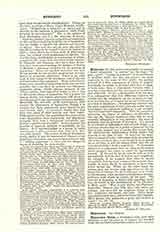

Hypocrisy (Gr. upo, under, and krinesthai, to contend—hence adequately “to answer” on the stage, “to play a part”, “to feign or pretend”) is the pretension to qualities which one does not possess, or, more cognately to the scope of this article, the putting forward of a false appearance of virtue or religion. Essentially its malice is identical with that of lying; in both cases there is discordance between what a man has in his mind and the simultaneous manifestation of himself. So far as the morality of the act goes, it is unimportant that this difference between the interior and the exterior be set out in words, as happens in formal lies, or be acted out in one’s demeanor, as is true of simulation. It is deserving of notice that the mere concealment of one’s own sin, unless one be interrogated by legitimate authority, is not straight-way to be accounted hypocrisy. With the purpose of measuring the degree of sinfulness attributable to this vice, St. Thomas Aquinas teaches that we must carefully differentiate its two elements: the want of goodness, and the pretense of having it. If a person be so minded as definitely to intend both things, it is of course obvious that he is guilty of grievous sin, for that is only another way of saying that a man lacks the indispensable righteousness which makes him pleasing in the sight of God. If, however, the hypocrite be occupied rather with successfully enacting the role he has assumed, then, even though he be in mortal sin at the time, it will not always follow that the act of counterfeiting is itself a mortal sin. To determine when it is so, cognizance must be taken of the motive which prompts the sinner to adopt his hypocritical bearing. If the end he has in view be such as to be incompatible with the love of God or one’s neighbor for example, if his purpose were thus to spread abroad false doctrine more unimpededly and more thoroughly, he must clearly be considered to have committed mortal sin. When, on the other hand, his animus does not involve such opposition to the supreme law of charity, the sin is esteemed to be venial, as, for instance, when one finds satisfaction in the completeness with which he carries off his part. The portrait of hypocrisy is drawn with appalling vividness by Christ in His denunciation of the Pharisees in Matt., xxiii: “Woe to you scribes and Pharisees, hypocrites; because you tithe mint, and anise, and cumin, and have left the weightier things of the law; judgment, and mercy, and faith. These things. you ought to have done, and not to leave those undone. Blind guides, who strain out a gnat, and swallow a camel” (vv. 23, 24).
JOSEPH F. DELANY

